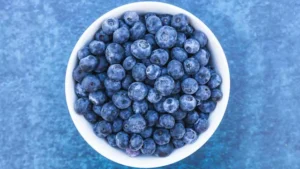Watermelon is a delicious and refreshing fruit that is also incredibly nutritious. It is low in calories and fat, and high in water, vitamins, minerals, and antioxidants. Watermelon is also a good source of citrulline, an amino acid that has been shown to improve exercise performance and reduce muscle soreness.
Watermelon is thought to have originated in southern Africa, where wild watermelon plants still grow today. It was first domesticated by the ancient Egyptians over 5,000 years ago. Watermelon seeds have been found in Egyptian tombs dating back to the Old Kingdom (2686-2181 BC).

Health Benefits of Watermelon for Fitness and Diet
- Hydration: Watermelon is 92% water, making it an excellent way to stay hydrated, especially during exercise.
- Electrolytes: Watermelon contains important electrolytes such as potassium and magnesium, which are essential for muscle function and hydration.
- Vitamins and minerals: Watermelon is a good source of vitamins A, C, and B6, as well as minerals such as potassium, magnesium, and manganese. These nutrients are essential for overall health and well-being.
- Weight loss: Watermelon is low in calories and fat, and high in water and fiber, making it a good food for weight loss.
- Muscle recovery: Citrulline, an amino acid found in watermelon, has been shown to improve muscle recovery and reduce muscle soreness after exercise.
- Athletic performance: Citrulline has also been shown to improve athletic performance by increasing nitric oxide levels in the blood. Nitric oxide is a vasodilator, which means that it helps to widen blood vessels. This can improve blood flow to the muscles and provide them with more oxygen and nutrients.
Related: Benefits of Water for Fitness and Health
How to Include Watermelon in Your Fitness and Diet Plan
Watermelon is a versatile fruit that can be enjoyed in many different ways. Here are a few ideas:
- Eat watermelon fresh as a snack or dessert.
- Add watermelon to salads, smoothies, and yogurt parfaits.
- Juice watermelon and drink it as a refreshing beverage.
- Freeze watermelon cubes for a healthy and delicious popsicle alternative.
- Use watermelon in recipes for soups, stews, and curries.
Conclusion
Watermelon is a delicious, nutritious, and refreshing fruit that is perfect for people of all ages and fitness levels. It is a good source of vitamins, minerals, and antioxidants, and it can also help to improve hydration, electrolyte balance, muscle recovery, and athletic performance.
FAQs
How much watermelon should I eat per day?
There is no recommended daily intake of watermelon, but most adults can safely eat up to 2 cups per day.
Is watermelon good for diabetics?
Watermelon is a good fruit for diabetics because it is low in calories and carbohydrates, and high in water and fiber. However, it is important to note that watermelon also contains some sugar, so it is important to consume it in moderation.
Can I eat watermelon seeds?
Yes, watermelon seeds are edible and safe to eat. They are a good source of protein, fiber, and healthy fats.
Is watermelon a good source of vitamin C?
Yes, watermelon is a good source of vitamin C. One cup of watermelon contains about 15% of the daily recommended intake for vitamin C.




